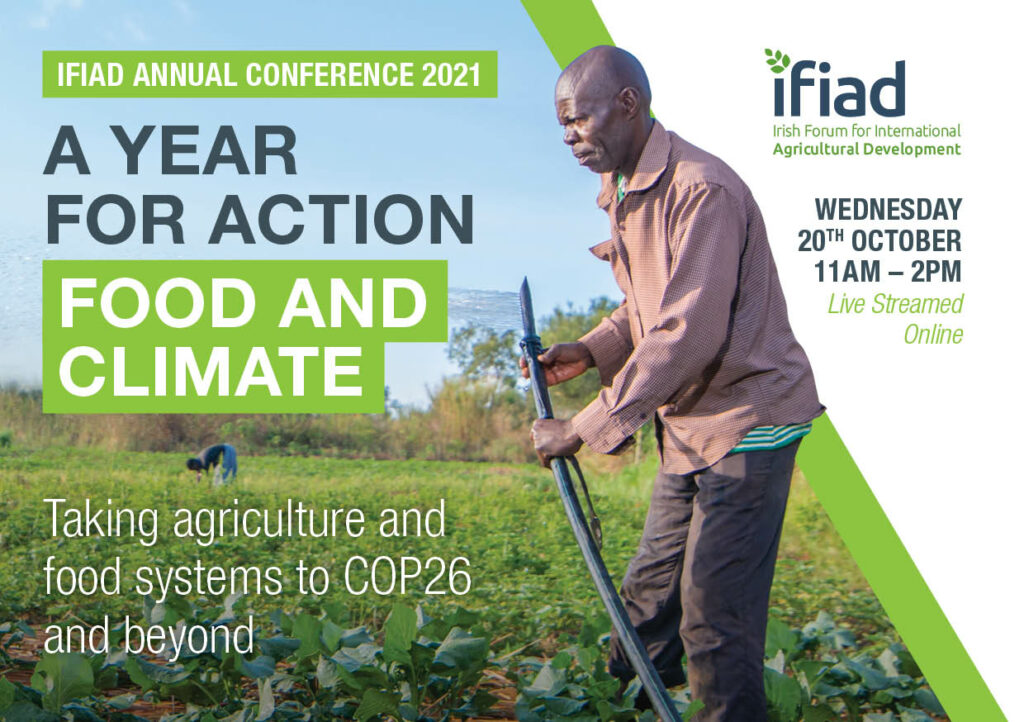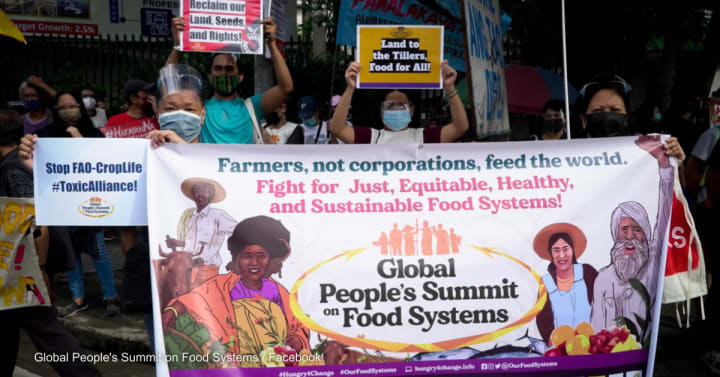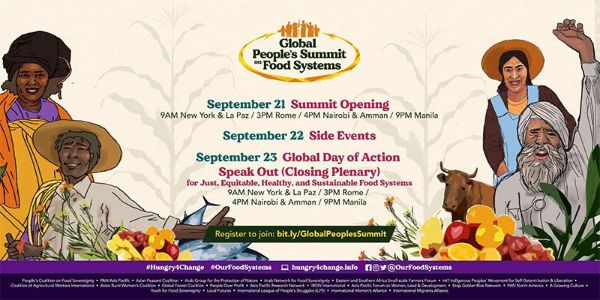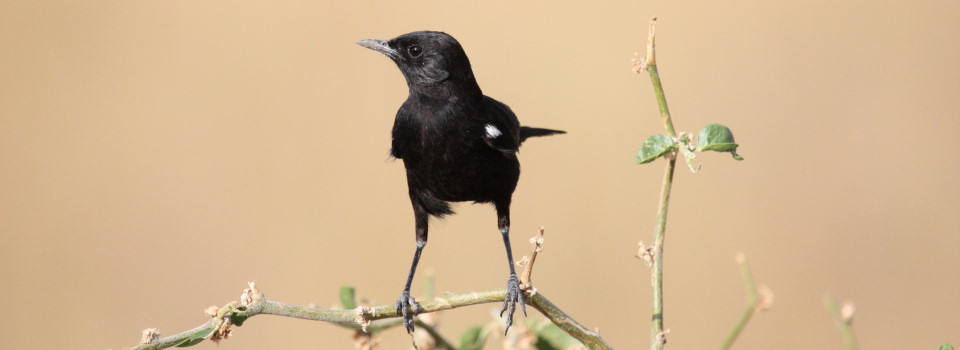
The IFIAD 2021 Annual Conference was broken into two sessions. Each session featured unique perspectives on recent and upcoming UN summits on food systems and climate change. The sessions were accompanied by a panel comprised of academics, NGO members, legislators and UN representatives, each bringing a diversity of insight, criticism and forward- building momentum to IFIAD's three hour dialogue. The first session, entitled 'Building on the Food Systems Summit - Priorities and Next Steps,' examined key takeaways from the recent 2021 UN Food Systems Summit. Maximo Cullen, Chief Economist of the Food and Agriculture Organization (FAO), opened the discussion with an overview of the The Summit’s Action Tracks. The five Action Tracks include:
- Ensure access to safe and nutritious food for all;
- Shift to sustainable consumption patterns;
- Boost nature positive production;
- Advance equitable livelihoods;
- Build resilience to vulnerabilities, shocks and stress.
The second half of the IFIAD Conference was entitled "Looking towards COP26: how can agriculture and food systems support climate change goals." This session began with opening remarks by Professor, Mark Howden, Vice Chair of IPCC's Working Group II. With cautious optimism, the panel addressed several key issues that bridge the gap between the 2021 UN Food Systems Summit and the approaching COP26. These included understanding the limitations of COP26 and its inability to be the catalyst for all systematic changes in the global food system, the importance of youth movements in collective action on climate change, and the acceptance that their will undoubtably be winners and losers following agreements made at events like COP26 and the Food Systems Summit. However, to continue having further discussions about climate change adaptation and food systems resilience, both winner and losers must be at the same negotiating table.
"When it comes to trust, I think we need to urgently reconsider the idea that self regulation by industry is an option as a pathway towards sustainability."
-Sinead Mowlds
Both panels stressed the importance of collaboration when implementing transformational change in food systems. This can take the form of multi-stakeholder in-country approaches to climate change adaptation or continuing to host Paris Agreement producing global events like COP. Despite the cross panel advocacy for intersectional collaboration, areas of polarization still arose during the discussion. These areas of contention focused on the 'credibility' of the private sector presence - multinational agri-businesses and finance institutions- at the 2021 UN Food Systems Summit. Questions such as "do multinationals and bankers need a larger platform for influence in the global food system" and "do corporate sustainability goals align with national emissions reduction commitments" were considered. Most panelists seemed to agree trade plays a vital role to improving a food system, but there are instances when a country's macro economic priorities and deregulation of the private sector do not contribute to bolstering its food system.
"The levels of extreme poverty and inequality we were facing were exacerbated by Covid-19."
- Maximo Cullen
During the IFIAD Conference, two issues were introduced but seemed to be largely undiscussed. Arguably the most topical and pressing issue is how the ongoing Covid-19 pandemic is expected to affect food systems focused SDGs and negotiations at COP26. Troubling statistics during Maximo's presentation revealed that globally 161 million more people slid into chronic hunger in 2020. The Covid-19 pandemic has become a multi-year barrier to achieving food security and food system resilience to climate change. While time was limited and numerous topics were discussed, building resilience to Covid-19 related shocks to the global food system was not further discussed among either panel. Additionally, there was mention of the numerous food and climate justice activists, indigenous groups, labor unions and farmers who protested both the Summit and pre-Summit. While the Summit's commitment to representation of marginalized voices should be applauded, clearly innumerable individuals still call into questions the close links to private sector corporate entities. Little conversation was had about who these groups were and why they felt the need to protest the intentions and stakeholders of the Summit. In order for the UN to continue bringing the voices of diverse and underrepresented groups to the 'Global Food Systems' table, the grievances of those who have protested past summits cannot be ignored.


IFIAD Annual Conference 2021: Panelists, Moderators, and Speakers
IFIAD Chair, Prof. Charles Spillane
Minister of State, Pippa Hackett, Dept. of Agriculture, Food and the Marine
Panels Moderator: Aine Lawlor, Presenter RTE News At One and TWIP
Session 1: Building on the Food Systems Summit - Priorities and Next Steps
Maximo Torero Cullen, Chief Economist, Food and Agriculture Organisation of the United Nations (FAO)
Connell Foley, Concern Worldwide
Sinead Mowlds, Independent Consultant
Tom Arnold, Ireland's Food Systems Envoy
Session 2: Looking towards COP26 Glasgow – how can agriculture and food systems support Climate Change mitigation and adaptation goals?
Professor Mark Howden, Vice Chair - Intergovernmental Panel on Climate Change (IPCC)
Ana Maria Loboguerrero, CGIAR Climate Change, Agriculture and Food Security (CCAFS) program
Donal Brown, International Fund for Agricultural Development (IFAD)
Sinead Walsh, Ireland's Climate Envoy
Tokelo Shai, Bioeconomy Youth Champion (& NUI Galway MScCCAFS alumna)
Looking Ahead: Upcoming Global Food, Agriculture, Climate Change and International Development Conferences
- 12th annual Africa Day For Food And Nutrition Security - October 28-29, 2021
- UN Climate Change Conference of the Parties (COP26) - October 31-November 12, 2021
- The Tokyo Nutrition for Growth (N4G) Summit - December 7-8, 2021
- The 9th Annual World Ocean Summit & Expo - March 1-3, 2022
References and further reading:
Matz, M. (2021, September 27). Opinion: The UN Food Systems Summit. AgriPulse Communications Inc RSS. Retrieved October 26, 2021, from https://www.agri-pulse.com/articles/16538-opinion-the-un-food-systems-summit.
Nargi, L. (2021, September 24). The UN is holding a summit on building a sustainable future for Food and AG. why are so many people upset about it? The Counter. Retrieved October 26, 2021, from https://thecounter.org/united-nations-summit-protest-corporations-sustainable-future-global-food-systems/.
